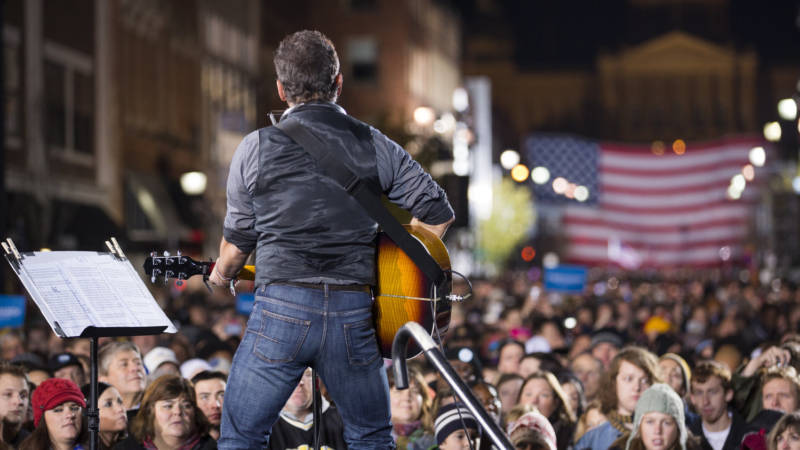On February 4, 1999, on Wheeler Avenue in the Soundview section of the Bronx, Amadou Diallo, an immigrant from Guinea, was killed by four plainclothes members of the New York Police Department’s Street Crimes Unit. Diallo, who was unarmed, was standing on the front stoop of the building where he lived and reaching for his wallet when the officers started shooting. They fired forty-one bullets, nineteen of which hit Diallo.
In response to the shooting, Bruce Springsteen released “American Skin (41 Shots),” a minor- key ballad, more anguished than angry, which applied the balms of empathy and narrative economy to a raw social wound. The central verse dramatizes what African American families call “the talk.” As a mother, Lena, prepares her son, Charles, for school, she reminds him: “You’ve got to understand the rules / if an officer stops you, promise me, you’ll always be polite / and that you’ll never ever run away / and promise mama you’ll keep your hands in sight.”
The following summer, I managed to score seats up in the rafters of Madison Square Garden for one of the last shows in the E Street Band’s epic reunion tour. A few rows ahead of me at that show, there were two guys [who] were bigger Bruce fans than I was, or at least fans of longer standing and purer pedigree.
But this isn’t really about me. It’s about those other guys, who I might not have noticed, and would never have remembered nearly twenty years after the fact, if not for what I’m about to describe. They looked a little older than I was: closer to forty than thirty. They were meatier, louder, probably drunker and having a great time—dancing, pumping their fists, exchanging high fives with strangers, singing along to every chorus and most of the verses. They were not self-conscious at all.
At least not until the first mournful notes of “American Skin.” I don’t remember if Bruce introduced it or if anyone needed reminding. The officers had been acquitted four months earlier, in February 2000. Diallo’s mother, Kadijatou, had filed a suit against the city in April. Maybe he said something about that, or maybe everyone remembered when he sang the line “forty-one shots.” As soon as he did, the two men turned their backs to the stage, clasped their hands in front of them and bowed their heads. They didn’t boo and they didn’t walk out but stood silently, registering their protest at the Boss’s protest.


9(MDAxOTAwOTE4MDEyMTkxMDAzNjczZDljZA004))

